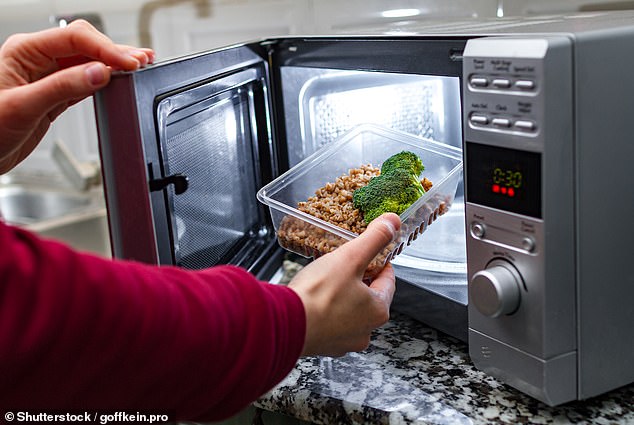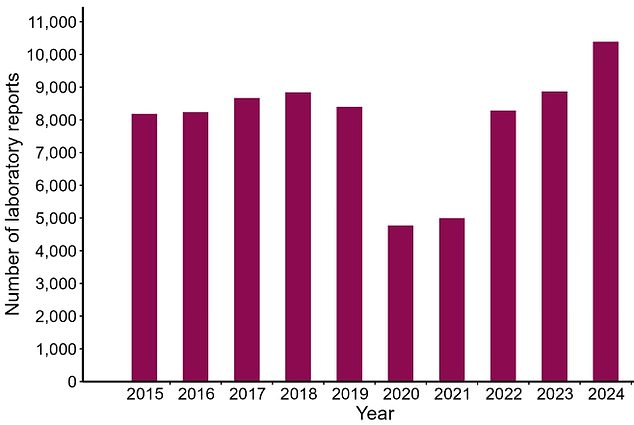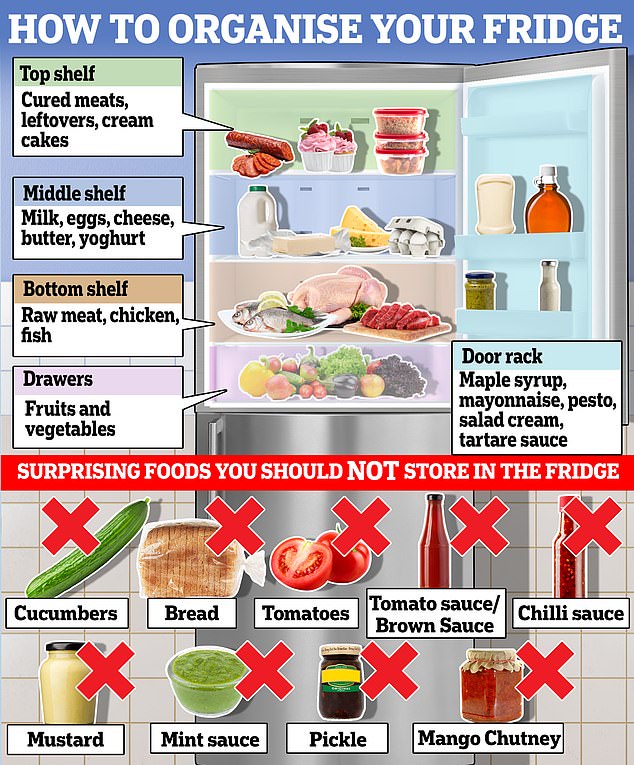A quarter of Britons are risking potentially deadly food poisoning in their desperate attempts to save cash, an official report warns.
Food safety watchdog The Food Standards Agency (FSA) found 23 per cent of people had engaged in what it called ‘risky practices’ in the home kitchen.
This included over one in 10 lowering the temperature they cooked at, as well as how long they ran appliances like ovens and hobs for, in a bid to cut down on energy bills.
One in 10 Britons were also guilty of turning off their fridge or freezer for periods of time, or raising the internal temperature of the appliances to save cash.
Heartbreakingly, more than one in 20 people surveyed reported eating food that needed to be cooked or reheated cold as they simply couldn’t afford to cook it.
The FSA said their survey—which recorded food habits in the survey group from August 2023 to March this year—showed ‘risky practices’ peaked around Christmas time, rising to 28 per cent.
Not heating food enough before eating or storing it at too warm a temperature risks allowing germs that cause food poisoning to survive.
Food poisoning is generic term for a foodborne illness that triggers symptoms like vomiting and diarrhoea.

A quarter of Britons are risking potentially deadly food poisoning in their desperate attempts to save cash, an official report warns

This UKHSA chart shows the number of salmonella cases recorded in England each year
It can caused by various pathogens including campylobacter bacteria, salmonella and E. coli, bugs that data suggests are on the rise in Britain.
Just last month health officials warned that cases of salmonella had surged to their highest level in over a decade.
As whole, food poisoning cases an estimated 2.5million people to fall ill in the UK each year.
While the vast majority of cases are mild, food poisoning can be deadly for some groups—like the elderly—with an estimated 200 fatalities per annum.
Such infections can lead to serious dehydration which can lead to fatal complications and the germs can also sometimes trigger sepsis a potentially deadly overreaction by the body’s immune system.
Data also showed when it came to food concerns most people were worried about rising food prices, with almost 9 in 10 saying saying it was a source of anxiety.
Michelle Patel, deputy director of analysis at the FSA, said the results showed how Briton’s budget concerns were contributing to them gambling with food poisoning.
‘Our latest annual data shows that food prices remain a top concern for most people,’ he said.
‘It also shows that many people are doing risky things to save money.’

Experts have said that leftovers should be stored in the top section of the fridge away from the fresh meat. But the FSA warns not to leave leftovers any longer than two days before eating them
Mr Patel said Britons can visit the FSA’s new advice page on food safety to learn more about how to reduce their risk of food poisoning.
In particular the regulator advises people to aim to have the food reach 70°C (158F) for two minutes while cooking though this can vary depending on the specific food and cooking method.
If you don’t have a food safe thermometer the FSA says to check food is steaming throughout and that in particular meats like chicken are cooked all the way through with no pink meat left.
When reheating food, people should ensure it is heated above 63°C (145.4F) to avoid what it called the ‘Danger Zone’ where bacteria can grow quickly and make you ill.
For same reason the FSA advises people ensure their fridge is between 0 and 5°C (32-41F) and their freezer is set to -18°C (0.4F) as this stops or inhibits the growth of potentially dangerous bacteria.
The FSA report is based on a rolling survey of 2,000 people living in England, Wales or Northern Ireland which is held every month.












